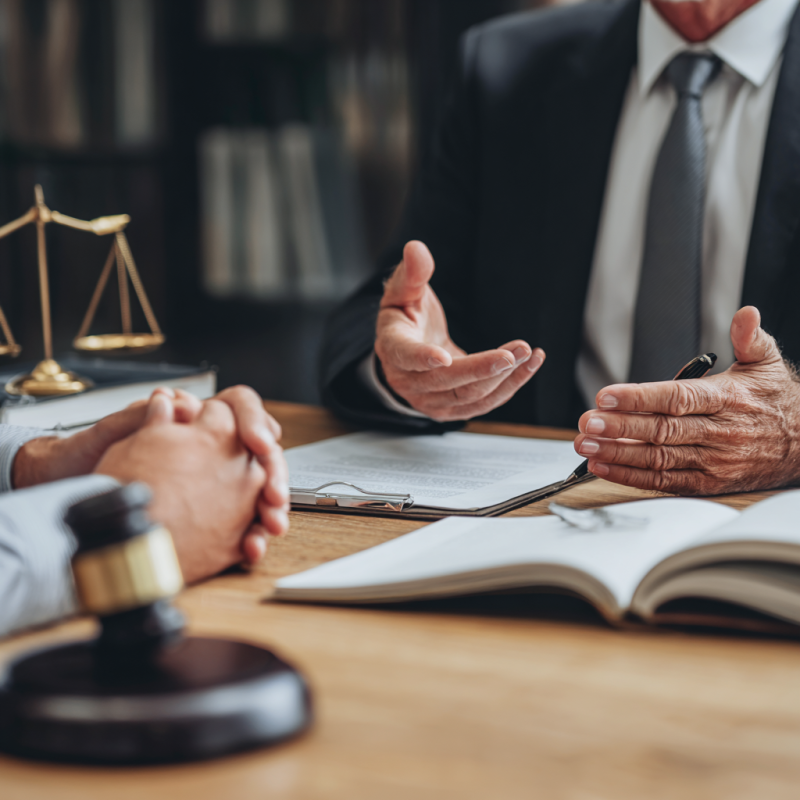What Questions to Ask a Personal Injury Law Attorney

Ask These Key Questions Before Hiring Legal Help
Over 4.6 million people suffer injuries in motor vehicle crashes each year in the US (NHTSA, 2022), and many more face slip-and-fall, workplace, or product liability incidents. If you’re considering legal help, knowing what questions to ask a personal injury law attorney can make a big difference in your case’s outcome. By focusing on experience, fee structure, communication style, and trial readiness, you’ll head into that first meeting with confidence. Good news, you don’t need a legal background to get straight answers.
What experience do you have with cases like mine?
Ask how many cases your attorney has handled that mirror your situation whether it’s a rear-end collision, medical malpractice, or a slip-and-fall. Experienced attorneys spot pitfalls early, like tricky liability issues or statute of limitations (the deadline for filing your claim). If they’ve secured results in cases similar to yours, that track record suggests they know how insurers and courts handle your type of injury.
How do you charge for your services?
Most personal injury lawyers work on a contingency-fee basis, meaning they collect a percentage of your settlement only if you win. Typical rates range from 25% to 40% of your award.
Be sure to ask:
- What percentage do you charge?
- Are there additional costs for court filings, expert witnesses, or investigators?
- Will I owe fees if we don’t recover compensation?
Understanding fees up front helps you compare options and avoid surprises. For more on fee norms, see our guide on how much does a personal injury law attorney charge.
What is your approach to valuing my claim?
Compensation can include medical expenses, lost wages, pain and suffering, and more. Ask how your attorney calculates those amounts. Do they rely on economic experts or medical professionals? A clear valuation method shows you’re dealing with a lawyer who knows how to build a strong demand package. You’ll get a realistic range to set expectations and plan next steps.
Who will handle my case day to day?
Law firms vary in size. Your main attorney may delegate research, paperwork, or negotiations to junior associates or paralegals.
Ask:
- Who are the key contacts?
- Will my file ever leave the senior attorney’s desk?
- How quickly can I expect responses from each team member?
Knowing who does what ensures you reach the right person when questions come up.
How long will the process take?
Timelines depend on case complexity, court schedules, and insurer cooperation. A simple claim might resolve in six months, while a disputed injury could take two years or more. Your attorney should map out major milestones like discovery (gathering evidence), depositions, and settlement talks. This step-by-step overview helps you plan for medical follow-ups, time off work, or life events.
How often will you update me?
Regular communication keeps you in the loop and avoids email or phone-tag frustrations. Ask how and when your attorney prefers to share updates weekly calls, monthly emails, or an online portal. Good communication also lets you flag new developments, such as unexpected medical bills or changes in treatment plans.
What happens if we need to go to trial?
Roughly 5% of personal injury cases see a courtroom showdown, but it’s wise to know your attorney’s trial experience.
Ask:
- How many cases have you taken to trial?
- What were the outcomes, verdicts or settlements?
- Do you work with a trial team or outside counsel?
If you must go before a judge or jury, you want someone who’s comfortable under pressure and ready to present evidence effectively.
Can you share references from past clients?
Client testimonials or peer endorsements reveal how an attorney treats people and handles setbacks.
A few brief calls or emails with former clients can confirm:
- Were they kept informed throughout the case?
- Did fees match the original agreement?
- How satisfied were they with the result?
Real-world feedback helps you balance confidence with healthy skepticism.
How to prepare for your attorney meeting
You’ll get the most from your first consultation when you arrive organized. Gather these items in advance to help your attorney assess your claim quickly.
Gather your medical and repair bills
Collect invoices, medical records, pharmacy receipts, and repair estimates. If you received treatment at multiple facilities, ask each for complete records. These documents form the backbone of your damage calculation.
Compile accident and police reports
Official reports often detail the sequence of events, witness statements, and any citations issued at the scene. A clear narrative speeds up liability analysis and directs investigators where to look.
Create a timeline of events
List dates, times, and descriptions from the moment of injury to each medical appointment and rehabilitation session. This timeline clarifies what happened and prevents details from slipping through the cracks.
Choosing the right personal injury law attorney
As you weigh your options, focus on these selection criteria to find a lawyer who fits your needs and style.
Compare fee arrangements and cost expectations
While contingency fees are standard, percentages can vary. Some firms cap certain expenses, while others require you to cover court-related costs upfront. A side-by-side comparison helps you spot better value.
Check credentials and track record
Confirm your attorney is in good standing with the state bar and ask if they’ve earned any board certifications or trial awards. For tips on vetting legal credentials, see how to choose a personal injury law attorney.
Read client feedback and reviews
Online ratings give you a general sense of client satisfaction, but pay attention to verified reviews that mention clear communication, ethical billing, and empathy. Personal anecdotes can highlight strengths or potential concerns.
What Questions to Ask a Personal Injury Law Attorney
Knowing what questions to ask a personal injury law attorney gives you the upper hand during your first consultation. It helps you evaluate legal experience, communication habits, case strategy, and cost structure ensuring you’re not walking in blind.
Set up consultations with a few attorneys, ask the right questions, and choose the one who best fits your needs. This single decision can directly affect the success of your personal injury claim.
Ready to Hire the Right Attorney? Don’t Wait – Schedule Your Free Case Review Today
Now that you know what questions to ask a personal injury law attorney, it’s time to act. Talk to a lawyer today and move forward with clarity and confidence.
Frequently asked questions
1. What does a personal injury law attorney do?
A personal injury law attorney helps clients injured in accidents by evaluating claims, collecting evidence, negotiating with insurers, and representing them in court to secure compensation for medical bills, lost income, and pain.
2. How to choose a personal injury law attorney?
When deciding how to choose a personal injury law attorney, consider experience, past results, communication, and fees. Consult multiple attorneys to find the best fit.
3. How much does a personal injury law attorney charge?
Most personal injury attorneys work on contingency, paying only if you win, typically 25%–40% of the settlement. Hourly rates and flat fees are less common.
4. When do I need a personal injury law attorney?
Hire a personal injury law attorney if your injuries are serious, liability is disputed, insurers Low-ball, deadlines are near, or the case is complex. They guide you through the process and help secure fair compensation.
5. What if the other party has no insurance?
Uninsured at-fault parties complicate recovery. You may be able to tap into your own uninsured motorist coverage or pursue a lawsuit directly. Ask your attorney how they handle uninsured claims in your state.
6. Do I have to go to court for my claim?
Most personal injury cases settle out of court. Roughly 95% end in negotiated agreements. Still, be prepared for trial, your lawyer’s willingness to take a case before a jury often strengthens your bargaining position.
7. Can I change attorneys during my case?
Yes, you have the right to switch lawyers if you feel your case isn’t getting the attention it deserves. Review your fee agreement for any notice requirements or transitional costs.
Key takeaways
- Focus on an attorney’s direct experience with cases like yours.
- Clarify fee structures and any additional costs up front.
- Request a clear valuation method for your potential compensation.
- Understand who on the team handles your case and how often you’ll get updates.
- Prepare documents, medical records, bills, and reports, ahead of your meeting.
- Compare at least two attorneys before deciding.
